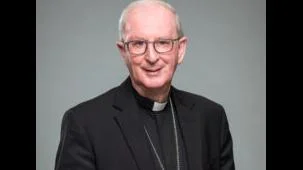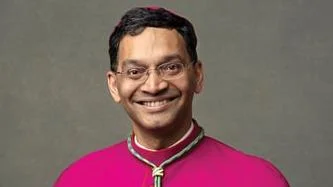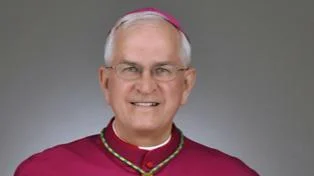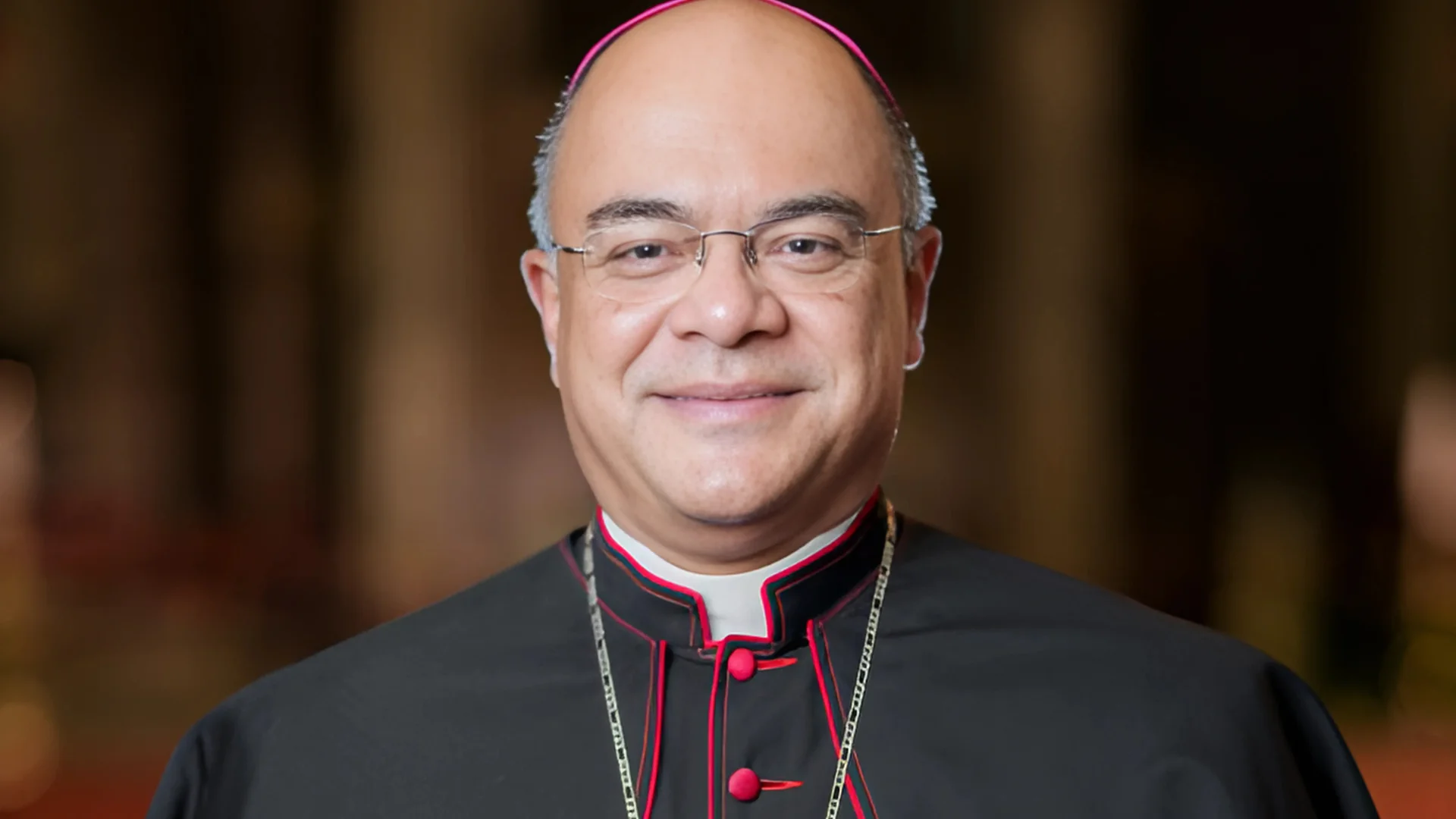
Bishop John Noonan | Diocese of Orland website
Franklin Welch, a Navy veteran who overcame significant health and personal challenges, is among the residents benefiting from a culinary program at Pathways to New Hope in Sanford. After caring for his mother until her death and surviving lymphatic cancer, Welch faced homelessness due to family circumstances. He found support through Pathways to New Hope, an affordable housing complex managed by Catholic Charities of Central Florida.
“I say I’m 7 years old because it was seven years ago. I started over, seriously, from the bone marrow out,” Welch said.
Pathways partners with Seminole State College to provide opportunities for residents. The on-site professional kitchen hosts a culinary course that offers ServSafe Food Handler certification. Through the Seminole State Commits program, qualifying students referred by community organizations like Pathways can access free non-credit courses and workshops.
“Homeless veterans have a stigma, but I was very fortunate to end up here,” Welch said. Despite his experience preparing meals during his Navy service, he had never received official certification until now. “Now I am a certified food handler for the first time in my life, after all my experience. And I think it’s amazing,” he added. “It’s been a blessing to be here. I’ll be forever grateful. And the culinary is just like the whipped cream on the top of the whole thing.”
Tabbatha Maceda also benefited from Pathways’ programs after becoming homeless with her children following job loss and other family hardships. She joined Welch in the first culinary class held at Pathways’ campus.
“I love to cook. I’ve been in the food industry almost all my life. Any kind of customer service, food, fast food, waitressing, whatever,” Maceda said. While she is not currently using her certification professionally, she hopes it will assist her as she seeks employment in food service.
Another resident, Darnell Hubbard, arrived at Pathways after staying at a nearby shelter and struggling with hereditary arthritis and addiction issues.
“You can go back and do the same thing, but you’re going to have the same results. That’s why I’m taking advantage of this program,” Hubbard explained about his participation in case management and vocational training efforts at Pathways.
The culinary certificate gives him hope for better employment prospects: “Staying sober, I’m happy because I’ve always wanted to be a chef… Even though I’m older and I have some difficulty, I still think that I could be a chef part-time.” In addition to cooking classes, Hubbard participates in computer and financial planning sessions while working with director Joshua Weidenhammer on long-term goals.
Hubbard expressed gratitude for both practical support and spiritual guidance: “Honestly, I do not want to be homeless again… It’s a blessing because of where I was at the time… And Josh is tremendous. He helps me in every direction... Sometimes you need that… And prayer—because nobody can help me more than God.”
Weidenhammer described his role as one focused on case management with an emphasis on social welfare: “Working on them with their goals, collaborating with them on their struggles … also coordinating vocational training, encouraging people and promoting the ministry in the community.” He highlighted how Seminole State staff work closely with residents to explore career paths or interests such as photography or music alongside technical education like GED preparation.
To date nine residents have completed the culinary program offered through this partnership; two graduated most recently on August 26 and 27.
Weidenhammer emphasized that Pathways offers more than just reduced rent: “You have somebody with a lot of experience and a lot of know-how that can navigate the system that’s here for you… whatever it is.”
He concluded by noting his satisfaction when residents participate actively: “Seeing (residents) want to participate in case management [and] really take a shot at bettering their lives” provides him great reward.
Pathways operates within The Diocese of Orlando, which was established in 1968 and includes parishes across several central Florida counties under Bishop James Noonan’s leadership.





 Alerts Sign-up
Alerts Sign-up